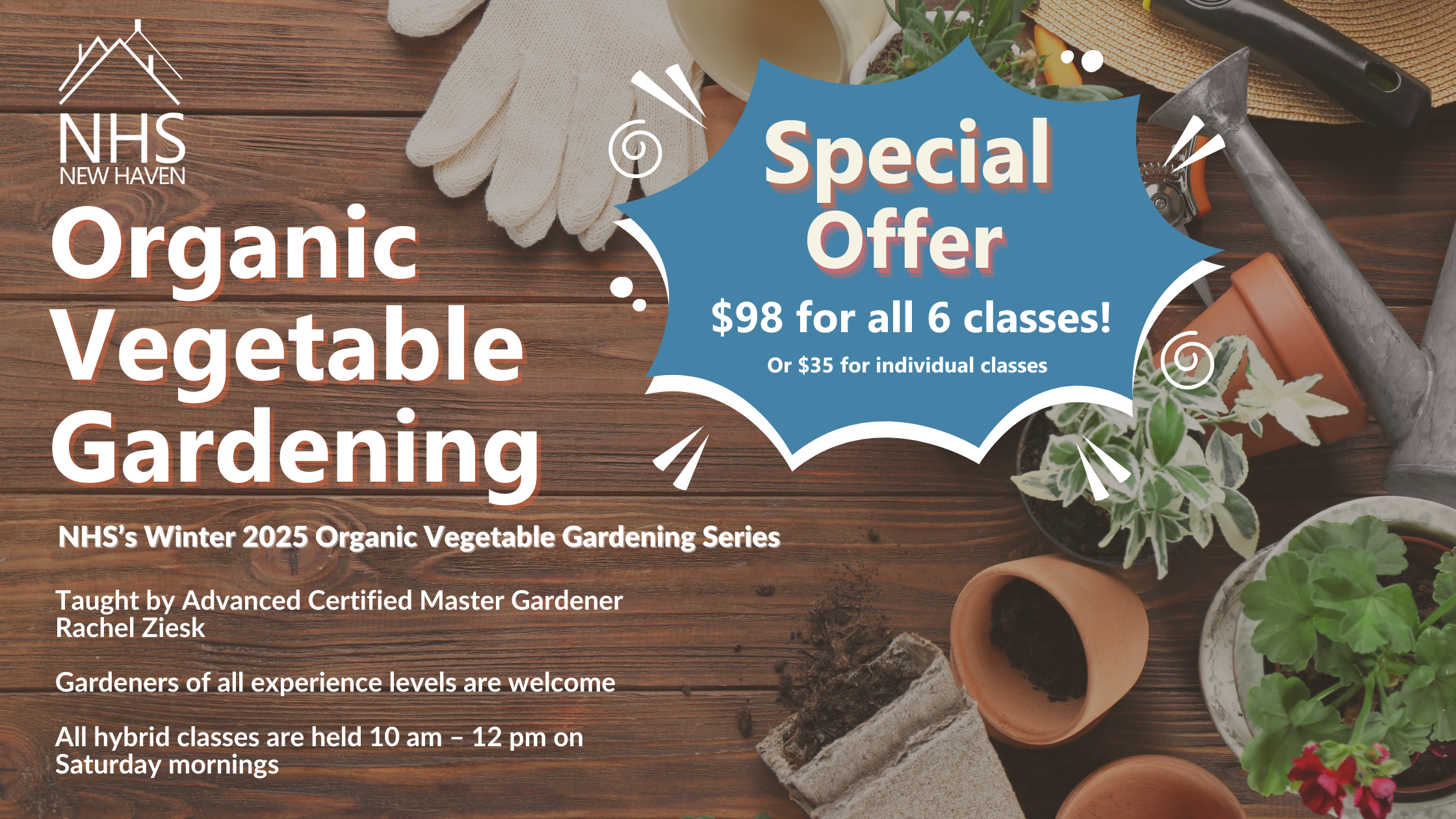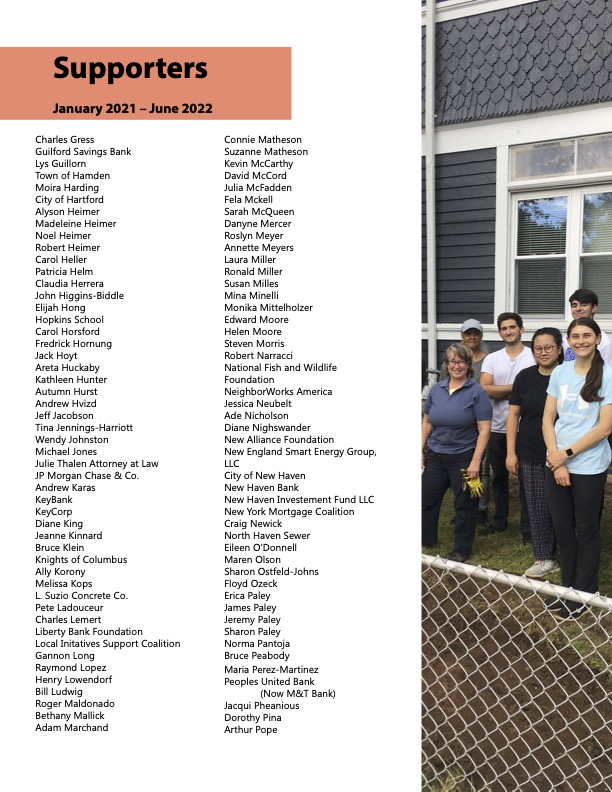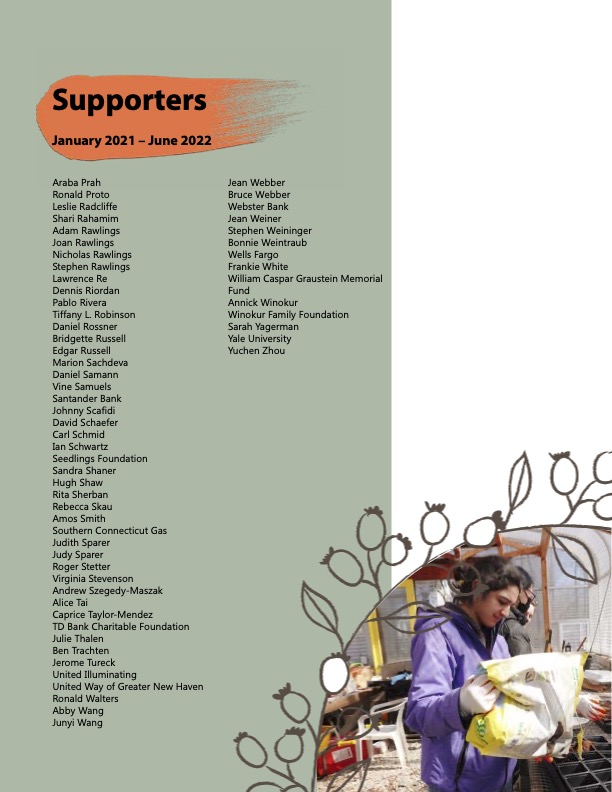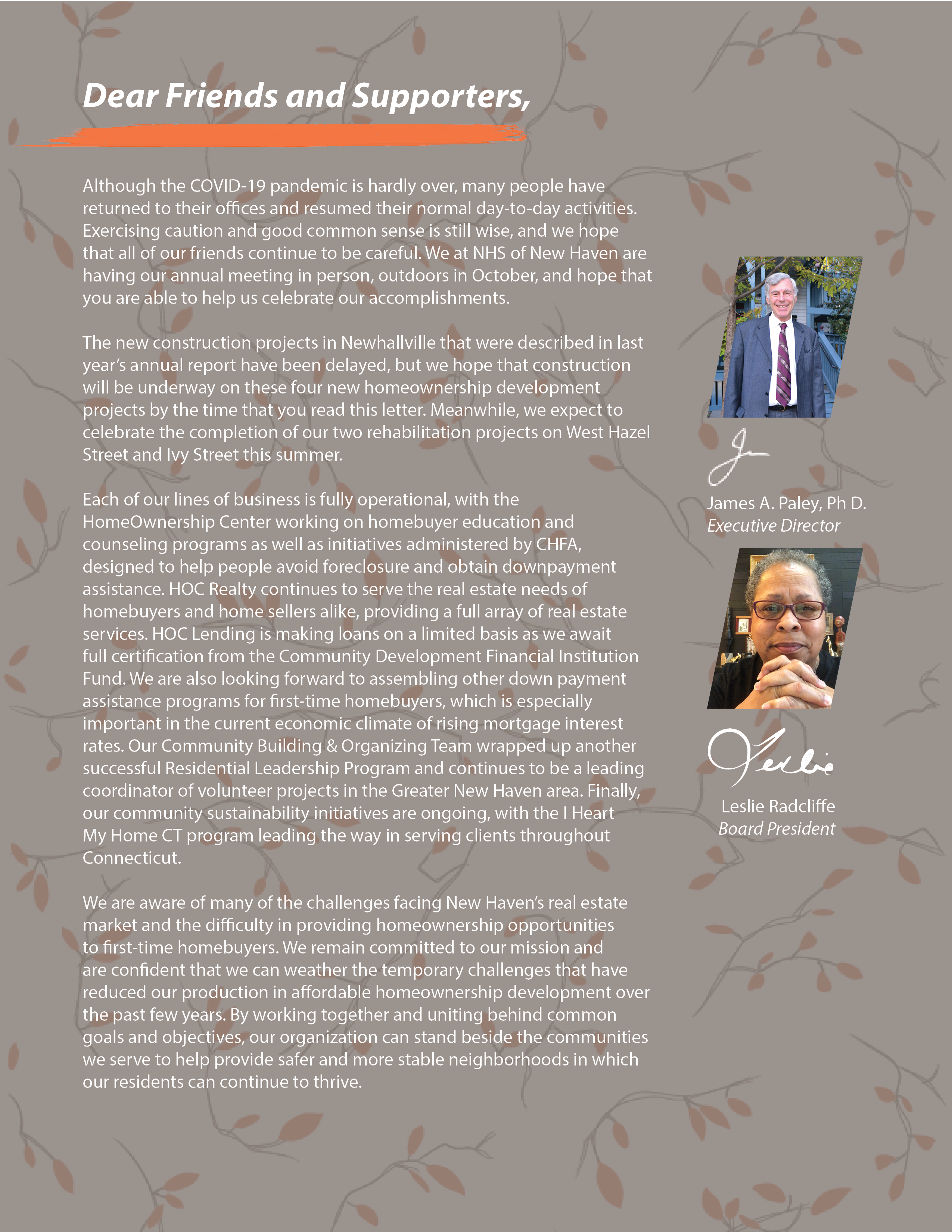Organic Vegetable Gardening Series
Food Security and Environmental Education at NHS of New Haven
Are you or a loved one a gardener who gets cabin-fever in the wintertime?
Each year we offer a series of organic vegetable gardening classes to help get you ready for gardening season. The instructor is Advanced Certified Master Gardener Rachel Ziesk.
For many New Haven residents, food security is elusive. We like to do our part in helping neighbors grow fresh, healthy organic produce, in soil that’s been tested for lead and other contaminants. That’s why every year we offer this series for free to New Haven community gardeners, and we offer a help-a-neighbor rate for those who would like to help us make additional scholarships available.
2025 Classes
All classes are held 10-12 on Saturday mornings at 333 Sherman Ave (Building 3), New Haven, CT 06511
Soils and Composting – 1/25/25
The most important component for a successful garden is soil health. Learn how to make and keep your soil healthy for the most productive garden. Class also covers making your own compost, the best addition to your soil you can make.
Cool Weather Crops – 2/1/25
Learn about starting your garden as soon as the soil thaws, even in the middle of March! Cool weather crops don’t mind the cold, so you can get a jump on the season; planting early means harvesting earlier and longer. This class covers how and when to plant cool weather crops.
Warm Weather Crops – 2/8/25
Everything you need to know about warm weather crops: how to make the best of our short growing season, which crops are best started indoors, which can be directly seeded into the ground, what conditions and fertilizers each crop prefers for optimal yield.
Garden Pests and Diseases – 2/15/25
Garden pests and diseases can harm your crops and lessen your harvest potential. This class features the most common pests and diseases and the steps you can take to minimize damage. Knowing the bad insects from the good will also help you attract and keep the good insects while repelling the bad.
Seed Starting, When and Where to Plant – 2/22/25
How and when to start seedlings indoors. Learn about watering, using lights, dealing with common seed starting problems, and moving your seedlings to the garden. Learn which seeds can be planted directly outdoors, and which are planted in fall for a crop next year.
Seed Saving and Fall Planting – 3/1/25
Lots of seeds can be saved from your crops to re-plant the next season, and/or donate to seed banks. This class will tell you how to save seed from many different varieties of crops. This class will also cover crops and seeds that need to be planted in fall, including cone flowers, milkweed, garlic, and more.
Future Classes May Include:
Garden Planning & Season Extenders
By planning ahead, you can ensure a continued supply of organic vegetables and fruits all season long. Learn how to use season extenders – row covers, organic mulch, cold frames and more – to plant early and keep harvesting late, increasing the yield of what you plant.
Essential Flowers & Herbs
Lots of seeds can be saved from your crops to re-plant the next season, and/or donate to seed banks. This class will tell you how to save seed from many different varieties of crops. This class will also cover crops and seeds that need to be planted in fall, including cone flowers, milkweed, garlic, and more.
Weeds: the Good, the Bad, and the Tasty
There are so many weeds! Some are actually native wildflowers benefiting your vegetable garden by attracting native pollinators. Some are invasive horrors with plans to take over your garden. And some are edible, delicious little morsels that can be harvested and enjoyed.
Perennial Vegetables, Fruit and Herbs
This class features vegetables, fruits and herbs that are planted once and return year after year. Vegetables such as rhubarb, asparagus and horseradish. Fruits like blueberries, strawberries and grapes. Herbs such as chives and thyme, among many others. Learn how to plant, care for, and fight pests and diseases of these long-lived, under-utilized garden plants.
Preserving your Garden Harvest
Learn how to preserve a variety of different crops for future enjoyment. Methods covered include canning, freezing, dehydrating, pickling, and root cellaring. Learn which methods work for which crops, what equipment you will need for each technique, and how to safely and effectively preserve your favorite crops while retaining peak flavor and nutritional value.
Native and Invasive Plants
Learn how to identify native and invasive wildflowers and weeds. You will learn which are edible or useful for your garden and which need to be dealt with so they don’t spread and destroy your garden crops.
For more information, call (203) 562-0598 or email Kathy.




